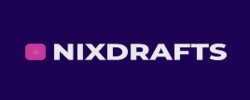|
Getting your Trinity Audio player ready...
|
5 Best Linux Package Managers for Linux Newbies
Learning to manage a Linux package manager is critical for efficient Linux Administration. These programs are helpful to streamline the maintenance of programs without the hassle of dealing with wizards or hunting down the needed Exe Files. We will understand how the package managers work.
As such, they ensure that you are using up-to-date programs with the latest security patches for your servers. This article will highlight the purpose of a Linux package manager and feature our best picks for entry-level Linux administrators.
As you shift to Linux, you may consider a custom thesis writing service to help keep abreast with academics and improve your overall mastery of the Linux OS.
Table of Contents
What is the Purpose of a Linux Package Manager?
A package manager is a tool that helps you to automatically install, upgrade, configure and manage the software on your operating system. Package managers interact with metadata and create a local metadata cache on your system.
The package manager then uses this information to engage the relevant repositories, accessing essential dependencies for installing and running programs. As a result, package managers allow you to enjoy the latest versions of your programs without having to interact with the wizard and downloading additional files.
The Best Linux Package Managers for Beginners
Various Linux package managers have different command-line interfaces and capabilities, determining your experience as a Linux administrator. Dissertation writing help may come in handy to help overcome your academic and Linux learning curve. Linux Package Managers List includes Some of the best package managers for Linux newbies include:
1. Dpkg Package Manager
Dpkg is an abbreviation for the Debian package. This manager is considered a low-level package manager for files with a .deb extension. You can use the manager to resolve dependencies, reducing conflict with other programs.
You can also list products and specific information for Linux systems that rely on Debian package repositories. This package manager is used for Debian Linux or Debian-based Linux distributions like Ubuntu and Linux mint.
The clean command-line interface and easy execution commands make it easy for newbies to maneuver and manage various programs. You should, however, note that Dpkg is not capable of automatically downloading and installing packages or their dependencies.
2. APT Package Manager
Apt is an open-source program manager with a dedicated community like the former. This makes it easy to get help with various functions of program management.
APT is an abbreviation for Advanced Packaging Tool. This tool is used to manage Debian-based packages and utilizes Dpkg to execute various commands and install packages.
Although it lacks an inbuilt GUI, APT has an excellent command line interface, making for easy interaction with Dpkg packages. This tool is also capable of resolving dependencies and downloading updates automatically.
3. RPM Package Manager
RPM is a standard tool for managing packages in the RedHat enterprise Linux systems and Novel Susse networks enterprise. This open-source, command-line-driven manager is used for programs with a .rpm file format.
You can use the package manager to install, update, and uninstall software and program dependencies. Even better, You can use this tool to build computer software into packages for distribution.
4. Pacman Package Manager
Pacman is a text-based Arch Linux package manager that uses compressed files as a package format. You can use this manager to install, uninstall, upgrade programs, and auto-upgrade dependencies.
Pacman uses a simple build system, helping you quickly manage programs using simple command lines. The tool synchronizes package lists with the master server, keeping all your programs updated.
5. Aptitude Package Manager
Aptitude is an interactive mode that serves as a front-end to APT. The tool shares repositories with apt and thus can manage various functions that APT can manage.
Thanks to the excellent user-friendly command interface, you can easily install, retrieve and browse packages without keying in complex command lines. Aptitude allows you to browse packages by status and display the Debian changelog.
You can also preview actions due to the color code employed for various actions. Currently, Aptitude is being introduced for other packet managers, although it was previously meant for apt.
As a front-end to APT, Aptitude can automatically download dependencies and update software automatically.
Final Take
A Linux package manager is a handy tool to address software installation, dependencies updates, and program management. These Linux package managers should come in handy as they reduce the fuss associated with maintaining your computer programs. We also recommend a manager that provides auto-updates as it protects your servers from various security threats.
Other Important Articles To Read
Why Find Command In Linux Had Been So Popular Till Now?
40 Important Basic Linux Commands For Beginners With Examples




